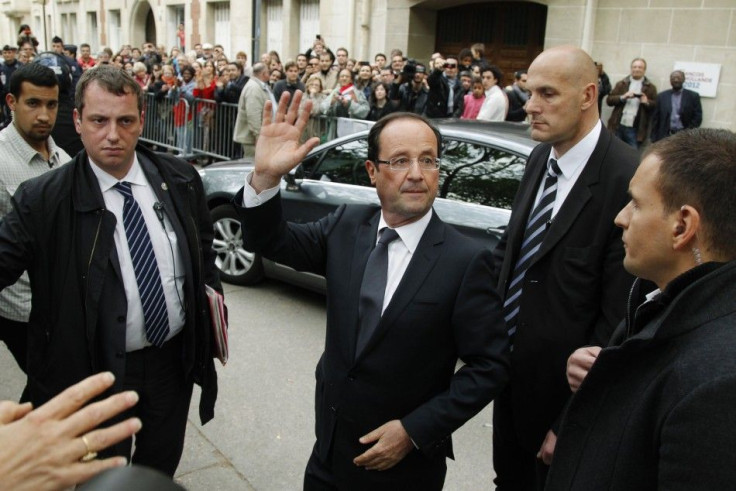What Now For Europe? What Could Happen After French And Greek Elections Changed Political Landscape

The scenario did not look promising. Markets tanked last Friday in anticipation of a victory by the Socialist candidate to the French presidency, Francois Hollande, and of a messy parliamentary election in Greece, delivering the keys to power to fringe parties opposed to the austerity programs that kept the country in the euro.
The conventional wisdom was that the French and Greek votes would deliver a death blow to the spending cuts and fiscal consolidation programs that European leaders agreed to as a condition for bailing out the weaker, indebted countries in the euro zone.
And yet, now that it has really happened -- Hollande is France's president-elect; Greece has no clear majority in Parliament and the hard-left and hard-right both did very well in the polls -- the markets don't seem to be too unhappy. The Europe-wide Stoxx 50 index closed with a 1.55 percent gain on Monday, and on Wall Street the Dow hovers between gains and losses, while the S&P 500 is up at midday.
According to Laura Gonzalez, an assistant professor of finance at Fordham University who has studied the European debt crisis, Hollande's victory will most likely be in the interest of both the EU and U.S. With unemployment on the Continent at the highest in 15 years, the status quo is not sustainable, and Hollande will have to implement systemic reforms to promote growth, while remaining within the European fiscal compact signed in March.
Still, fears persist that a Socialist at the helm of Europe's second-biggest economy is bad for business. Hollande has said that "austerity isn't inevitable", and that "as president my mission now is to give European construction a growth dimension." But growth may not necessarily mean the return of the deficit spending that helped lead Europe to a debt crisis. Indeed, Hollande's platform says that he wants to eliminate current-account deficits by 2017, while promoting growth.
Hollande also recognizes that no European leader can do much without consulting the union's biggest country and number one economy, Germany. The new president's camp has announced he will fly to Berlin as soon as he assumes power on May 15, to meet Chancellor Angela Merkel -- who said Monday that "you simply can't do this" when asked what she thought of a possible renegotiation of the EU agreement that led to the eurozone bailouts.
In other words, despite media speculation, the Franco-German axis that lies at the heart of EU cooperation is unlikely to suffer unduly with Hollande as president. "Both are ultimately pro-European and pragmatic politicians", wrote James Goundry, an analyst at IHS Global Insight in London.
And if the example of France's only other Socialist president is any guide, Hollande won't tack far to the left.
When Francois Mitterrand became president in 1981, he embarked on a hard leftist course, nationalizing banks and large corporations. But he promtply reversed his stance in the face of mounting inflation and backlash, and from the mid-1980s to the end of his second term in 1995, ran France from the center.
Together with German Chancellor Helmut Kohl, he was a driving force behind European integration and the process that led to the euro. And in foreign policy, he kept France steadily in the Western camp during the waning years of the Cold War, even joining the U.S.-led coalition in the 1991 Gulf War. Hardly the stuff of what the average American observer would think of as European-style socialism.
Greece is a different story. Risks of a default on the country's huge debt, almost twice as big as its economy, have kept bond markets on edge for more than a year. The parties that have gained the most in Sunday's election, the far-right Golden Dawn and the far-left Syriza, which wants to end austerity, are a throwback to Europe's past -- especially Golden Dawn, which includes neo-Nazis and whose leader has warned that "traitors must begin to be afraid".
The mainstream Socialist PASOK party and center-right New Democracy have been crushed, and a new election may have to be called soon if Parliament can't agree on a national unity government.
"The risks related to Greece exiting the euro or defaulting outright have increased again, which is probably an even stronger boost for [German] bunds", Michael Leister, a rates strategist at DZ Bank in Frankfurt, told Bloomberg. But Greece is a much smaller economy than France, which is eight times bigger in terms of gross domestic product. The European Union may be in turmoil, but it won't collapse if Greece defaults or exits the euro.
© Copyright IBTimes 2024. All rights reserved.












